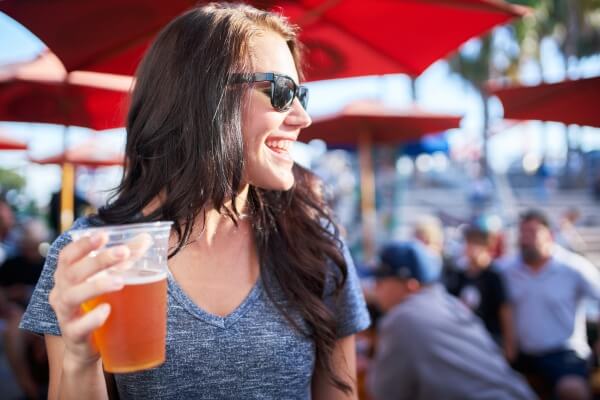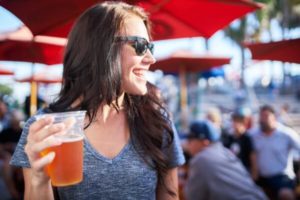While drinking laws commonly remain the same from state to state, there are certain jurisdictions and applicable laws which are subject to change depending on your location. Everyone enjoys having a good time with a bottle of cold beer or wine by their side however, you must always enjoy alcoholic beverages responsibly. To do so, you must be knowledgeable about the various laws surrounding intoxication in your particular state or jurisdiction. South Carolina has strict laws surrounding the consumption of alcoholic beverages in public and what the acceptable amount of alcohol content is within a given person’s system while operating a motor vehicle.
Public Consumption Laws in South Carolina
South Carolina state law does not prohibit “public intoxication” generally speaking. Section 16-17-530 of South Carolina state law prohibits “gross intoxication” in public. Behavior such as belligerent speech and being a nuisance would fall under this category. Violations of this state ordinance are considered misdemeanors which can carry fines of up to $100 or 30 days in jail. South Carolina state law also prohibits persons from attending meetings, social gatherings, assemblies or religious congregations while intoxicated. Violations of this ordinance are susceptible to fines anywhere between the amount of $20-$100 and/or jail time no less than 30 days but no greater than a full calendar year.
While state laws govern the entity of the sovereign state as a whole, local city ordinances can modify the implications of violations committed within each individual city. An example of this would be the city of Charleston where section 21-163 of city ordinance prohibits public intoxication of any form whether it be from alcohol or illicit substances.
Open container laws in South Carolina are a bit more strict. South Carolina state law makes it illegal for anyone operating a motor vehicle to be in possession of an open container of alcohol. South Carolina Code Section 61-6-4020 and 61-4-110 strictly prohibits the transport of an open alcoholic container unless the container is located in the rear trunk or cargo area of the vehicle where it may only be accessed from the exterior.
Aside from minors being in possession of alcohol directly, there are also consequences for adults who choose to provide minors with access to alcoholic beverages. South Carolina code 61-6-4070 states that the penalty for an adult providing alcoholic beverages to a minor is a fine of $200-$300 and a 30 day jail sentence or both dependent upon circumstances.
All of the above offenses are considered to be misdemeanors in the state of South Carolina, however these offenses still qualify as public record when you’re applying for a job or filling out any application that requires a criminal background check. South Carolina combines disorderly conduct and public intoxication under the same statute although they do not have to be committed simultaneously in order for a person to be considered guilty of one or more charges. South Carolina statute states under section 16-17-530 that any person conducting themselves in a disorderly or boisterous manner, which can include actions such as obscene or profane language and discharging a firearm or pistol, can be convicted. The consequences include a fine of no more than $100 or imprisonment with a maximum sentence of 30 days.
In South Carolina, law prohibits disorderly conduct if a person commits any of the following actions:
- Attempts to or is involved with inciting a riot.
- Either independently or in conjunction with others, obstructs the flow of pedestrian vehicles or traffic and refuses to clear motor pathways when instructed by a sanctioned city policeman or any other lawful entity.
- Provokes or engages in activity with the intent to fight, brawl or cause riotous conduct which directly implies the threat of physical violence to the limbs, health, property or life of another person.
- Interferes with another’s pursuit of legal activities by way of violent acts.
Under the influence of alcohol, the above offenses can be compounded which may be bring more weighty legal repercussions than if these were committed sober.

Chase Harbin is a Criminal Defense Lawyer who practices in Pickens and Greenville, SC. He graduated from the University of South Carolina School of Law, and has been practicing law for 17 years now. Chase Harbin believes in defending the accused. Learn more about his experience by clicking here.


